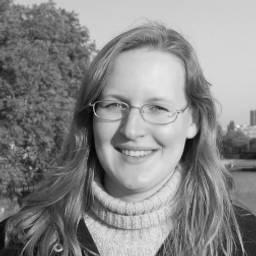Changing Places, Changing People? Critical Heritage(s) of Diaspora, Migration and Belonging I
My Session Status
• How do ideas of place and place attachment shape or limit the positions individuals and groups may adopt? What roles do autobiography, memory and history play in shaping such ideas?
• How are scales of identity, place and belonging exhibited or influenced differently by both heritage and politics? What transitional identities and redefinitions of self, community, other and place develop in relation to the heritage practices, mediated memories and “past-presencing” of migrants?
• How do displaced people negotiate community and place in tension between the “here and now” and the “there and then” that shapes their heritage discourse as much as the elite discourse they are confronted with in everyday life?
• How are contested heritage practices, discourses and associations of "authenticity" negotiated between communities, and what role do official discourses and practices play in alleviating or aggravating these contestations?
• As displacement is becoming a common experience, what significance do "memorates" of “roots and routes” have in various socio-historical or geo-political contexts for shaping journeys of return, (re)discovery, pilgrimage or "closure" that figure in heritage tourism?
• How compatible are notions of cultural citizenship based on parity of esteem with the coexistence of perhaps conflicting heritage discourses? Why is conceptualizing conflict as heritage so difficult?
• Given the continued reality of multi-facetted place attachment, how may migration and displacement be turned into opportunities for re-placing communities and heritages while avoiding the trap of a shallow essentialism, and sanitization of uncomfortable heritages?
• What is needed to make critical heritage sustainable in a social, political and economic environment in radical flux (migration, climate change, financial crisis, political upheaval and conflict)? How do we decide which heritages should be sustained, who legitimizes these decisions, and to what extent are such questions about merely replacing one elite with the power of definition by another?
We are keen to examine issues such as these from multi- and interdisciplinary perspectives combining theoretical explorations with applied concerns. Along with papers we encourage creative engagement using other formats with a capacity to capture our subject matter, such as artwork, poetry or performance.
Sub Sessions
This paper draws on an on-going research project studying continuities and changes in the actions, norms, and representations of an ethnic youth movement from an interdisciplinary perspective that is grounded in ethno-anthropology and human ecology. The negotiation of identities in the German Youth of the East (Deutsche Jugend des Ostens – DJO) over successive generations—between a “backward” glance at lost homelands and the “forward” embracing of European heritage of “unity in diversity,”...
This paper will analyze presentations of and identifications with scales of “home” and belonging in European museums, which address (hi)stories of migration and displacement in their displays. It will examine these through the lens of place identity theories, object and display interpretation, and the idea of the “exhibitionary complex.” Empirical research explored visitors’ emotional responses to museum “past-presencing,” and their individual or collective memories of the dark heritage of...
When put into the context of cultural heritage, the idea of the emotional value of a landscape can be defined in ICOMOS’s concept of “Spirit of Place.” While this concept has been developed in relation to world heritage sites and cultural landscapes, it has relevance to any landscape that holds the history, memories, and stories of individuals or communities. The spirit of place is defined as the “living, social and spiritual nature” of place and is comprised of “the tangible… and the inta...
Canadian society is diverse, and in it, multiculturalism is well pronounced. Based on the Canadian Multiculturalism Act which recognizes Canadians’ wide-ranging religions, languages, and customs, the country has endeavoured to maintain a balance between cultural diversity and social cohesion. Over the centuries, migrants of different ethnicities have brought with them their cultural values as part of their heritage. Most Canadians’ identities are shaped around cultural practices, values, a...
This paper will explore the preservation of tangible and intangible heritage practices by German Clubs in America. Empirical evidence combines with testimony and historic records in this research to initiate a critical investigation into the clubs’ motives and methods in maintaining traditions. Further, it will consider the broader implications of the clubs’ cultural role. The preservation of heritage practices beyond the sphere of the family has largely been accomplished through these clu...



